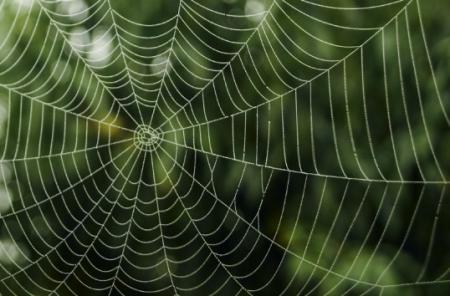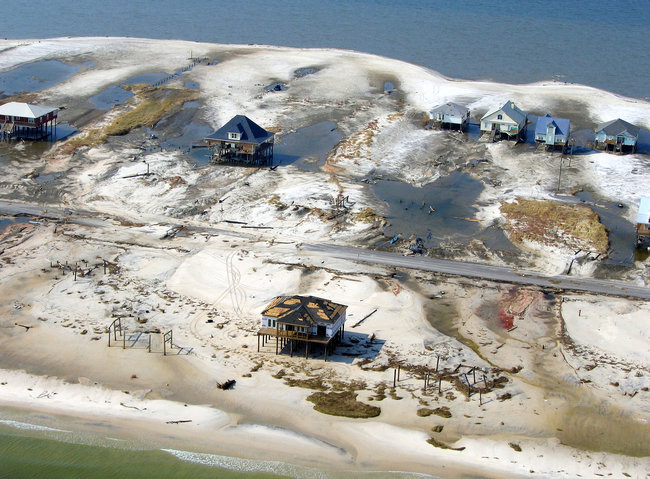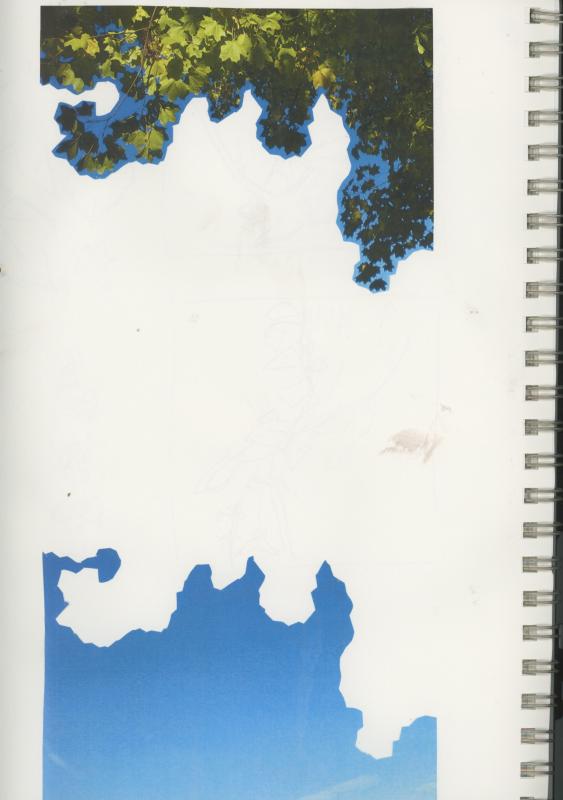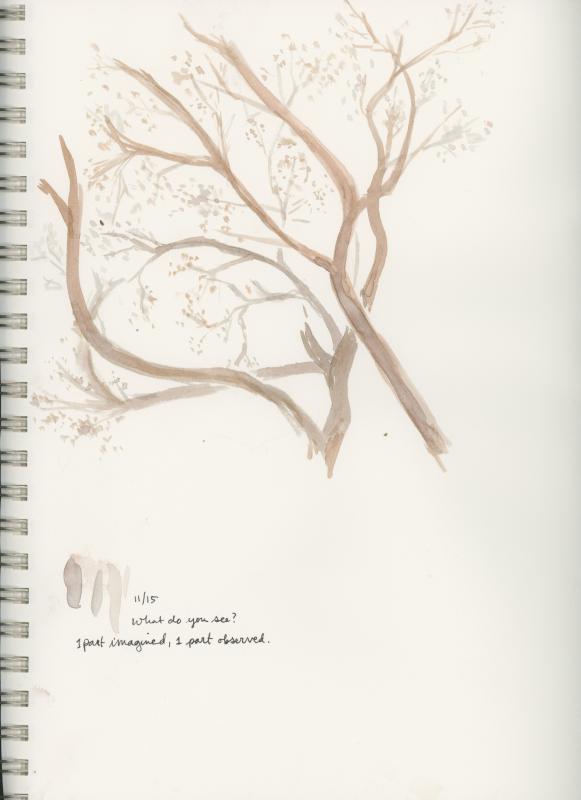Serendip is an independent site partnering with faculty at multiple colleges and universities around the world. Happy exploring!
EcoLit 313

Welcome to the on-line conversation for Ecological Imaginings, an English, Environmental Studies and Gender and Sexuality course @ Bryn Mawr College in which we are re-thinking the evolving nature of representation, with a focus on language as a link between natural and cultural ecosystems.
This is an interestingly different kind of place for writing, and may take some getting used to. The first thing to keep in mind is that it's not a site for "formal writing" or "finished thoughts." It's a place for thoughts-in-progress, for what you're thinking (whether you know it or not) on your way to what you think next. Imagine that you're just talking to some people you've met. This is a "conversation" place, a place to find out what you're thinking yourself, and what other people are thinking. The idea here is that your "thoughts in progress" can help others with their thinking, and theirs can help you with yours.
Who are you writing for? Primarily for yourself, and for others in our course. But also for the world. This is a "public" forum, so people anywhere on the web might look in. You're writing for yourself, for others in the class, AND for others you might or might not know. So, your thoughts in progress can contribute to the thoughts in progress of LOTS of people. The web is giving increasing reality to the idea that there can actually evolve a world community, and you're part of helping to bring that about. We're glad to have you along, and hope you come to both enjoy and value our shared explorations. Feel free to comment on any post below, or to POST YOUR THOUGHTS HERE.

Bridge at Night!
So as I decided last time, I wanted to walk the stone bridge at night. I went this time as the sun had already started setting, and it struck me how quiet it was. Or rather how quiet it became, because as I was descending the hill, I could clearly hear the ducks/geese quacking in the pond. When I got down to the lake however and decided to cross the fence, they quieted down, probably sensing my presence. When I go in the late afternoons, there is often so much background noise; either the athletics teams are cheering or there is some traffic noise. Eventually though, they quacked lightly and shifted their positions in the pond. I think some were settling and trying to sleep. This is the first time in all my visits that I've gotten to see ducks, so I was very pleased and excited by this. As I stood out on the bridge, I remember thinking that animal life can be very noisy too; it's not just humans who can be loud. I could hear the ducks all the way from Goodhart when I was approaching.

Economic Self Interests vs. Ethical Benefits

Image URL: http://www.natureskills.com/ecourse/nature-connect/
Aldo Leopold states of Ethics: (in his The Land Ethic) "We can be ethical only in relation to something we can see, feel, understand, love or otherwise have faith in" and that "Ethics are possibly a kind of community instinct-in-the-making."
I agree that our current societal values depend heavily on economic-self interests with respect to our individual and collective impacts on the environment and land-ownership. If we do not see an immediate benefit of an action base don self-interests - we will not engage in it. To give a simple example, this is why on a warm sunny day, we might decide to throw our wet clothes in the dryer and come back to dry clothes in an hour rather than make use of the sunshine and hang them on the balcony for a few hours (and save energy and offer long term benefits for our clothing fabric material as well). Generally it seems that the choices that we make are based on immediate-self interests and a view of ethics as Leopold puts it, may help us make different choices. Ethics can be seen as more communal values based on ideas and beliefs an interconnected peoples may support. If a communal value was to reduce energy consumption - then perhaps we would choose to dry our clothes outside. I have a funny story to share about this, in fact:
Easy Like Sunday Morning...A Geological/Botanical Tour
Three freshmen from Anne's ESem, Max and I begain our ramble around 10:13am on Sunday morning. I know Max and I didn't discuss planning anything out for the trip and I don't think the freshmen did either.
We started walking toward Taylor Hall from Erdman to start the geological tour, but Max thought that, since we were by her site sit, we should stop by and look at some of the plant life around there. She pointed out the English Ivy and a beech tree and we discussed whether or not we thought this one plant was a weed. Stemming from that last topic, we talked a bit about what we thought weeds were and Max cited the definition that we came up with on our botanical tour that "a weed is something that is not where it is supposed to be and doens't want to leave" (please correct me if that is wrong).
We paused here for a bit longer to discuss what had and what had not been helpful to us in class thus far. The freshmen each cited the amount of writing that is required in their ESem as helpful to improving that skill for them, though they are becoming a bit tired of the repetition. We compared the location of class between our two classes. The ESem holds class in a different location each day and that location is chosen by a different student (the same way we chose whether to be outside or not). We told them about our system and compared the merits and distractions of both strategies. One thing that stood out for me was that, althought the freshmen enjoyed getting to know a new location each day, they di

Rebuilding after Disaster: What makes "sense"?
I'm having a weather-conscious Monday: 2 things happened.
#1. At breakfast, I saw an article on the front page of the Times, "As Coasts Rebuild and U.S. Pays, Repeatedly, the Critics Ask Why." The title pretty much sums up the article - What are we going to learn from Sandy & other weather events? Are we being financially and/or ecologically responsible? (short answer: no.)

- the federal government spends TONS of money on rebuilding coastal properties (one example was Dauphin Island): "Tax money will go toward putting things back as they were, essentially duplicating the vulnerability that existed before the hurricane…. At least $80 million, adjusted for inflation, has gone into patching up this one island since 1979 — more than $60,000 for every permanent resident. That does not include payments of $72 million to homeowners from the highly subsidized federal flood insurance program."

Next Steps (towards a final field trip)
What (I think!) emerged in today's discussion was a shared desire for a final field trip that (in graham's words) "lets our discussion become mobile." We seem to be moving towards a walk along Mill Creek. Below find what Lynne Elkins, of the BMC Geology Department, said when I asked her for guidance on how to do this "ramble."
In reponse to her questions: what is our purpose here? Shall we go to Ashbridge Park, to Mill Creek (in the acreage below Harriton House), or to Dove Lake? Rambling and talking together about a text? What is an "ecological" mode for making such a decision? How to be "ecologically conscious" in doing so?
....we do local trips very often, sometimes nearly every week for particular classes. I use Mill Creek for at least one class every semester. I agree that walking along it isn't feasible--in some places the banks are too overgrown, and in others it's probably private property or the stream enters underground drainages. You could walk farther by going through the water with waders, but in places storms have deposited enough debris that it might be impassible. I've never used it as far as Dove Lake, though.
My recommendations/ideas will really depend on the purpose of using a field site for this class. What kinds of observations are your class hoping to make? Will you take any measurements or do any analysis? Environmental studies/ecology is a bit too broad to be sure what would be best.

hibernating
Nov. 1...
"I need hibernation in order to create" - Terry Tempest Williams (p.58)
Nov. 8

Nov. 15

thoughts from today
It was interesting for me to hear Sruthi’s and Ursula Le Guin’s ideas on boundless love. These two things made me think of quotes/stories that were seared into my memory in high school. The first is from an essay that my older sister wrote about bare feet. She wrote: “I don’t know if it’s possible to measure a thing like love, but the two people in this world who I care for most fiercely are my younger brother and sister.”

Importation
A reflection on a collaborative botanical and geological ramble
We began our collaboration sitting in the chairs outside English House, just like we do for class. When talking through our two different (and yet similar) classes I was most struck by how we seemed to cover the same general topics, but that we used different texts to build up these topics. The freshmen mentioned the rewrite of a paragraph with the tragedy/comedy lens; when I asked if they had read “the Shakespeare reading” they said no, that they had read Alison Bechdel’s graphic memoir “Fun Home.” Having read this book in a past course with Anne I enjoyed looking back at my memory of it, wondering how my reading with this ecological and feminist lens may differ from the reading I had when it was in a non-fictional prose class. Since the book is currently residing with my mother, I may just have to pick it up again over winter break to see…
We had the freshmen crush and smell the leaves of privet, viburnum, and spice bush, as well as explore the differences between beech and tulip trees with their sense of touch. Thinking back to the very beginning of the semester, I wonder if our willingnesses to do these things would have been different; did people feel more comfortable getting “down and dirty” with nature because of what we’ve discovered together in our outdoor classroom? I’d like to think so, especially considering some of the words that were said that one class where we were speaking our associations with nature.
a saturday morning
We planned to have our shared experience with the freshmen on Saturday morning. Unfortunately, they didn’t show up. Instead of going on the geological ramble, Sara, Emma, and I lay on the lawn outside of English House, looked up at the trees, and talked about eating cookies and pizza and Thanksgiving dinner. It was nice. Saturday was a beautiful day. The ground was cold and a little damp, but it didn’t matter because the sun was shining so brightly. Sara noticed the bulbs on the Tulip tree branches; they look like pearls. A hawk flew through the sky. There were three men raking/leaf blowing the leaves off the grass.

recap on geological/botanical tour
Recap on Geological tour: We started at Pem Arch and walked all the way down the hill. The objective was to follow the course that water drains on our campus to its lowest point, Mill Creek, which is behind Batten House. On the way there, students from the E-Sem pointed out certain kinds of local rocks that were used for buildings or other purposes (Wissahickon Schist for Radnor and Denbigh, Baltimore Nice for Merion) - I was really impressed with how much our groupmates knew about this. They showed us maps of floodplains – how creek-beds and the surrounding areas are formed/changed by regular flooding. So when we got to Mill Creek, the floodplain was more observable/noticeable – we were looking for ways that water had affected the area, and we talked about creeks’ natural winding processes which cause some areas in the floodplain to be higher and others to be lower. I hadn’t put much thought into the importance of water and drainage systems when considering geological formations – but this walk changed my perspective.

Class Field Trip
I find the Mill Creek excursion or the prospect of walking along a river the most appealing. In my 2nd Web Paper, I proposed picking up the litter along Rhoads Pond, and Prof Dalke suggested possibly fitting that activity into our walk along Mill Creek, if that is what we end up choosing. As for the walk along a river, I think that would be a useful trip; we could treat it like a Thoreauvian Walk and amble and let things happen along the way. Part of the class might be structured, maybe we could have some activities, but I think kind of letting the experience happen along the way might have its merits too.
a confused patriot
For me, A Patriot’s Journal was Williams’s most compelling essay. I’ve been thinking about patriotism this week because I have strong and contradictory sentiments about the current escalating military conflict in Gaza/Israel. The images from this most recent iteration of the war are disturbing--they always have been. As usual, these pictures have prompted me to think about the images we don’t have from this country’s similar military conflict. My country’s war which resulted in European control of this land. This land which I feel so lucky to call my home. This land that I love.

A Buncha Thoughts...
"I have loved the stars too fondly to be fearful of the night.”
~Galileo Galilei (But probably in Italian…)
The city is different during the night than it is during the day. It is the not the same city. Carmen Papalia partially vocalizes this in Caning in the City when he discusses his own night-blindness, but what we all fail to acknowledge is that all our visions are affected by the shift from night to day. Our visibility is impaired, which leads to a whole range of effects that makes night seem so much more inherently daunting than the day, and in many ways it is a very gendered experience. Papalia’s way of seeing is very different, as necessitated by his inability to see during the night. But it’s also beautifully effective and absolutely incredible that his vision has evolved so. I wish we could appreciate our night vision in this way, instead of being so mistrusting of the night.
Playful
This week at my site I wasn't quite sure what to do or what to think about. So I decided that I would just play around. I took off my boots and socks and walked around barefoot and played with shadows. Despite being not much of a nature girl, I love feeling the grass and the earth underneath my feet. During the summer I am constantly in my parents' backyard with no shoes on. The earth was cool underneath my feet. It was hard but at the same time it had a comfortable give. I felt cushioned. The hills and valleys hidden in the grass were also a lot easier to sense with barefeet which I thoroughly enjoyed.

Hidden in Plain Sight
After Monday's trip to Morris Woods, I have starting noticing more plants that seem to be invasive or are clearly taking over with no natural enemy. Because of this, when I got to my spot, I realized that I had never actually noticed the English Ivy. Looking now, it is probably one of the stone circle's most noticeable attributes and I am kind of confused as to why I simply looked over it. This place is such a mess of different plants that I assumed that all of the green vines were parts of various ones, but after paying attention to the Ivy in Morris Woods and thinking about how it clearly does not belong there, the vines in the circle seem more noticeable, prominent, and out of place.
There is a concept in science fiction which allows a device to be created to hide things in plain sight. The device limits your perception of things by making you simply fail to notice them and occasionally notice something else instead. This can only be broken when an outside source draws your attention to what's being hidden. I just experienced real life science fiction! I know, not really, but the concept behind the technology is real. I didn't even see the English Ivy and I even perceived it as belonging to multiple plants until somebody else told me in a different situation to attend to the invasiveness of it. When I got to my site today, the presence of the ivy was almost creepy as I had never seen it before, but I had been seeing it every week at the same time.

My relationship with the natural world - Sacred Paths Cont...
I really enjoyed the class experience in Morris Woods. It was a pleasure to be surrounded by mostly plants for an hour and a half and there was such a noticble difference in environment and my experience of the way environment affects each of us as I walked out of the Morris Woods and into the English house parkinglot. My favorite aspect was the final activity - the partnered trust activity. I had explored a beech tree, without sight, and felt the vines of ivy that surrounded the right half of the beech tree and the bare, elephant skin that surrounded the other half. This tree was just perfect, I could wrap my arms around it and my hands could still meet on the other side. After rachelr carefully guided me about 10 meters away, I only had to spin once before I realized exactly which tree I had spent the past few minutes with. I wondered why that is so - how is it I could have known that instantly? As if one is recognizing an old friend, even without ever having seen him/her visually before. I wanted to apply this once more to my site and see what I found.

Observing Blind
Yesterday during my observation period, I decided to incorporate some of what the class discussed in regards to Caning in the City,as well as the experiences of the "Find Your Tree" exercise into my observation period. Having been inspired by both being blindly led in Morris Woods and Carmen's talk of how being physically blind changed his perceptions of his surroundings I decided to conduct my observation with my eyes closed. I wanted to see if I could be able to observe just as much sitting on my bench without visual aid as I could when I had my eyes open. Naturally trying to do so created some issues, as having my eyes closed led to some horrendous note taking but more importantly blindly observing would be vhallenging my orginal intention for choosing the spot so I could note the visual seasonal changes on the Haverford Nature Trail. But in conducting this visual-free observation time, I nonetheless was able to still take note of my surroundings in suprisingly new ways. For instance I noticed I had a better sense of how intense each gust of wind was and from which direction it was coming from, based on tiny things like feeling the wind on exposed skin or the slight rustling of dead leaves near the bench. I could suprisingly tell the differences between different vehicle engines and animal and bird calls based on small variations in the noise level that was generated (something I may have missed if I merely saw these objects and organisms and only took note of their visible differences rather than the small differences).



